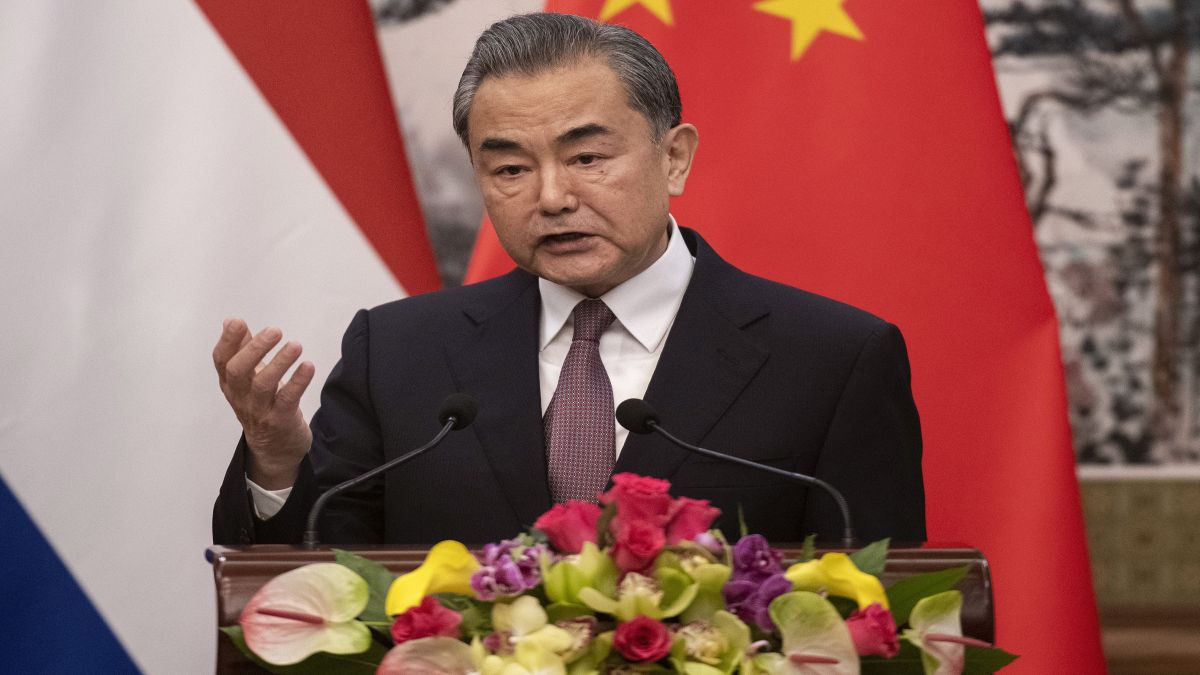India did right to vote for the United Nations resolution that rejected US President Trump’s acceptance of Jerusalem as the capital of Israel. Sure, foreign policy decisions should be based on national interest. This vote was in India’s national interest—quite apart from being morally correct, right in international law, and historically consistent. Let’s see how: Palestine has become the nub of geopolitics. Not to see this is perilous. This vote was not about Jews and Muslims, not even just about Palestinians and Israelis. It was about Russia, China, Iran and Pakistan—and a world in amazing geopolitical flux. President Trump’s high-profile visit to Saudi Arabia and Israel in May was difficult to miss, given the media glare. What has occurred since then, vis-a-vis Lebanon (with which Israel has had a longstanding border dispute), and within Saudi Arabia, have been no less than earth-shaking. [caption id=“attachment_4271329” align=“alignleft” width=“380”]  Pro-Palestine protests. Representational image. AP[/caption] Much easier to miss was the visit to China of Mahmoud Abbas, the president of the Palestine National Council, in July this year. He was grandly feted the way his predecessor, Yasser Arafat, used to be in New Delhi until a couple of decades ago. Chinese President Xi affirmed commitment to a two-state resolution, with full sovereignty for Palestine and its capital in East Jerusalem (including the old city sacred to three religions, which Israel occupied in 1967). It was over the capital that the Camp David talks between Arafat and Israel’s then Prime Minister, Ehud Barak, broke down in the US in July 2000. Plus, Xi suggested a trilateral discussion with Israel and Palestine to figure out how China could develop Palestine. The import of that can’t be shrugged away—like the combined geopolitical weight of the seven countries (Nauru, Palau, Togo, the Marshall Islands, Micronesia, Nicaragua and Guatemala) which voted with the US and Israel can. There is no getting away from the fact that we are witnessing a strong push by China to supplant the US as the pre-eminent geopolitical power, at least in Asia. Crucial to this is that Russia, which still retains a superpower military even after losing that status in economic and political terms, stands shoulder to shoulder with China. Russia used its military strength to bolster Syrian President Assad over the past couple of years. That was less about Syria than about regional geopolitics—Iran on the one hand, and Israel on the other. Iraq invasion fall-out To understand the complex multiple wars that have been played out in the Levant, one needs to take a hard-nosed look at the consequences of the US’s invasion of Iraq. The neo-conservatives’ plan to take over West Asia, which was to fall like a set of skittles, went very wrong. That much we know. But few of us bother to study what that failed takeover threw up instead. We should study it, for much of the geopolitics we are seeing today stems from that gross failure. Once Iraq descended into chaos, Iran gained tremendous leverage particualarly in southern Iraq. From Israel’s standpoint, this was horrific, for an ungoverned Iraq opened a land route from Iran to Syria and Lebanon, and thence Israel. Israel had already lost its last war against the militant Lebanon-based Hizbullah, for which it blames Iran. There is indeed little doubt that Iran has been a mentor to Syria, Lebanon, and Hizbullah. When Islamic State emerged about five years ago, it effectively blocked Iran’s route to not just Israel but even to Lebanon and Syria. Indeed, it took over parts of Syria amid the chaos that crop failure, migration, repression and other internal factors had already caused in Syria. Iran could only watch helplessly for a couple of years. That has changed radically. Not only has Islamic State been reduced to ineffectiveness in the region, Russia, China and Iran have emerged as an unstated but tough-to-miss axis in global affairs. The China-Pakistan Economic Corridor project (CPEC) has turned Pakistan into a key geographical pivot for that emergent axis. India’s national interest is to make that its prime foreign policy focus, not to plunge bull-headed into the quicksands of the `Middle East’—from where India sources most of its energy needs. Chinese ambitions Predictably, in the light of his Belt and Road project, President Xi has proposed to ease the Palestine-Israel problem through `development.’ The examples of Sri Lanka, Venezuela and several other countries indicate that this could involve high-spend, high-debt infrastructure-cum-trade deals that would give China a robust presence in the disputed territories. Although China is investing vast amounts to develop Djibouti and other ports to Africa, let us not forget that Gaza, which abuts Egypt, is the land connection between Asia and Africa. China’s plans for the 21st century are based on controlling the infrastructure via which trade (and potentially, any military operation) is conducted across Europe, Asia and Africa. Having lost the opportunity to compete with China for world domination, India has barely any elbow room with regard to the Israel-Palestine conflict. The hard fact is that China’s `development’ based initiatives are generally acceptable, and has given China the moral as well as the strategic high ground. It doesn’t take an outsized brain to see why initiatives based on trade and development would fly in the chanceries and public opinion forums of the world far more than a legally questionable switch to treating Jerusalem as Israel’s capital. India’s priority To have voted against the UN resolution defying the overwhelming tide of world opinion would have brought India into sharp focus, not as a prime mover of geopolitics, the way China is now seen, but as a mindless, spineless camp-follower—of Trump. India’s immediate concern should be the CPEC arm of the BRI, which passes through Jammu and Kashmir state. It will connect China with the Gulf and the Suez Canal, and so give China far more influence over West Asia. In the bargain, CPEC could result in the physical takeover of parts of Pakistan. China has already taken over the geostrategically vital Hum Buntota port and a vast economic zone around it in Sri Lanka was a few days ago, when Sri Lanka could not pay its construction-related debt. India must handle these challenges smartly, circumspectly, for it has left itself a weak hand. To revive its influence in its own neighbourhood demands deft and balanced handling of China, Russia, Iran and Pakistan—not to speak of other neighbours. If it to be taken seriously, India must be seen to act on the basis of its own priorities and agenda, taking logical and consistent positions. Particularly in the light of President Trump’s uncertain record and focus on economic self-interest, it would be foolish to depend on the US as an unfailing support.
India did right to vote for the United Nations resolution that rejected US President Trump’s acceptance of Jerusalem as the capital of Israel.
David Devadas is an expert on politics and geopolitics. Formerly a Senior Fellow at the Nehru Memorial Museum and Library, Visiting Professor at Jamia Millia Islamia, and Political Editor of Business Standard, he is currently Distinguished Fellow at the Institute for Social Sciences. He has written books on Kashmir, on youth, and on history. He has been a radio compere, guest faculty at JNU's Academic Staff College, St Stephen's College and Hindu College. He has worked for the Indian Express, The Hindustan Times, India Today, The Economic Times and Gulf News. His most impactful article, on a murder cover-up, prevented a Congress President from becoming prime minister. One led to the closure of an airline, and another created a furore and consequent clean-up in Delhi's health department. Several have correctly predicted election results in key states, and a series of reports from Srinagar made the government aware of how unsettled the situation there was in 1990. He is an alumnus of St Xavier's School, St Stephen's College, and the Indian Institute of Mass Communication. He has lived for extended periods in Geneva and Berlin, and has traveled to almost 50 countries. He enjoys various kinds of music, theatre, design, architecture and art. see more


)

)
)
)
)
)
)
)
)



